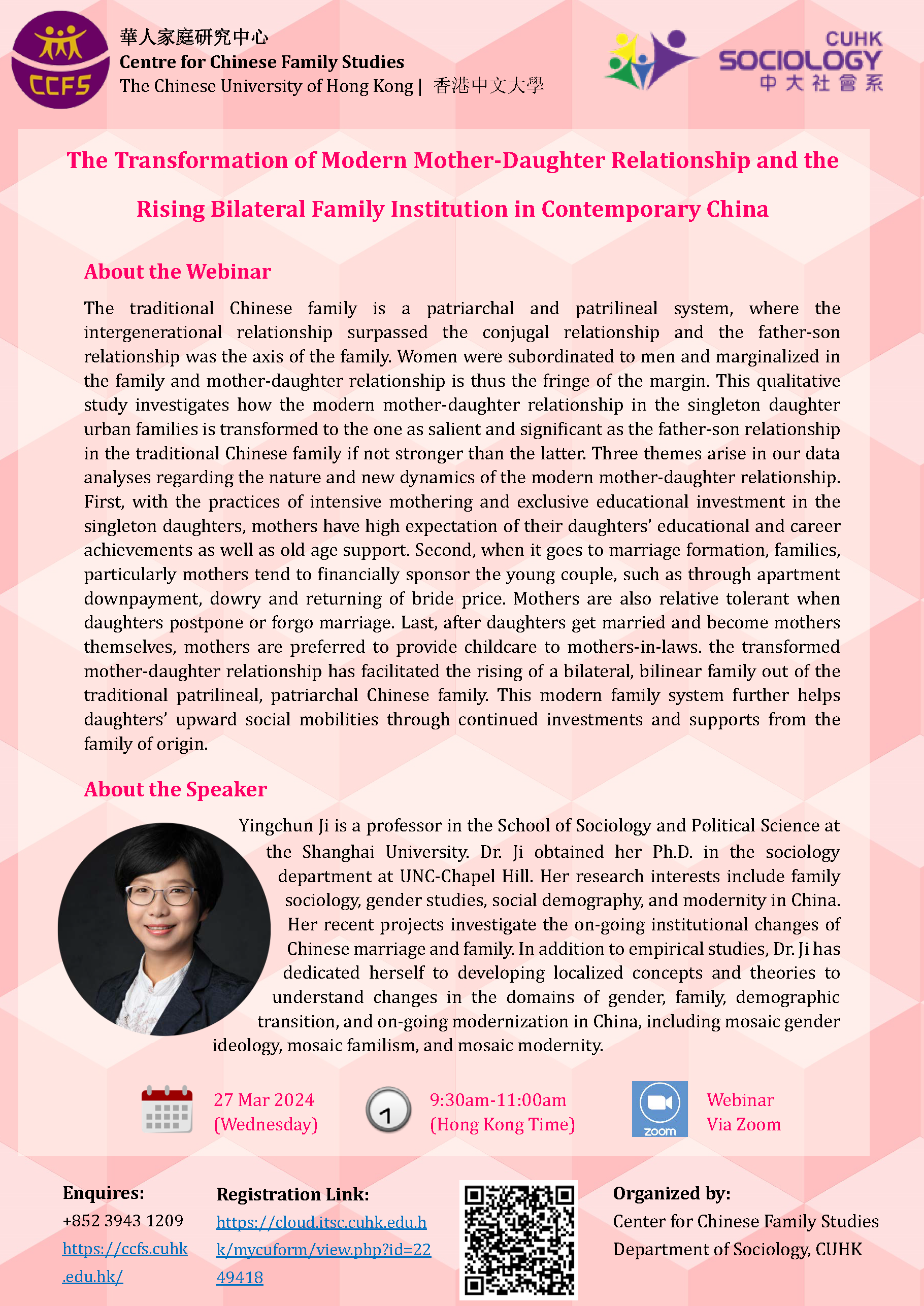Speaker: Prof. Yingchun Ji (Professor, School of Sociology and Political Science, Shanghai University, China)
Date & Time: 9:30am–11:00am, 27 March 2024 (Wednesday, HK Time)
Venue: Zoom (ZOOM Link will be sent to registered audience after finished the e-registration.)
Registration: https://cloud.itsc.cuhk.edu.hk/mycuform/view.php?id=2249418
About the Webinar: The traditional Chinese family is a patriarchal and patrilineal system, where the intergenerational relationship surpassed the conjugal relationship and the father-son relationship was the axis of the family. Women were subordinated to men and marginalized in the family and mother-daughter relationship is thus the fringe of the margin. This qualitative study investigates how the modern mother-daughter relationship in the singleton daughter urban families is transformed to the one as salient and significant as the father-son relationship in the traditional Chinese family if not stronger than the latter. Three themes arise in our data analyses regarding the nature and new dynamics of the modern mother-daughter relationship. First, with the practices of intensive mothering and exclusive educational investment in the singleton daughters, mothers have high expectation of their daughters’ educational and career achievements as well as old age support. Second, when it goes to marriage formation, families, particularly mothers tend to financially sponsor the young couple, such as through apartment downpayment, dowry and returning of bride price. Mothers are also relative tolerant when daughters postpone or forgo marriage. Last, after daughters get married and become mothers themselves, mothers are preferred to provide childcare to mothers-in-laws. the transformed mother-daughter relationship has facilitated the rising of a bilateral, bilinear family out of the traditional patrilineal, patriarchal Chinese family. This modern family system further helps daughters’ upward social mobilities through continued investments and supports from the family of origin.
About the Speaker: Yingchun Ji is a professor in the School of Sociology and Political Science at the Shanghai University. Dr. Ji obtained her Ph.D. in the sociology department at UNC-Chapel Hill. Her research interests include family sociology, gender studies, social demography, and modernity in China. Her recent projects investigate the on-going institutional changes of Chinese marriage and family. In addition to empirical studies, Dr. Ji has dedicated herself to developing localized concepts and theories to understand changes in the domains of gender, family, demographic transition, and on-going modernization in China, including mosaic gender ideology, mosaic familism, and mosaic modernity.

